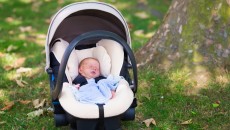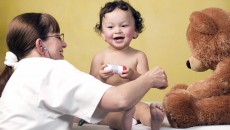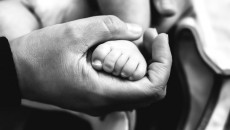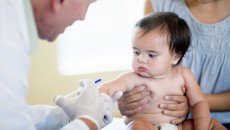When we got our referral, we accepted it with joy. Soon after, however, we realized something wasn’t right.
10 Steps to Coping with a Failed Adoption
Don’t be afraid to take time to grieve after a failed adoption. Your future family will be better for it.
Our Adoption Referral Story
AF readers share how they reacted when they received their adoption referral.
Responding to an Adoption Referral
Don’t agree to any match or referral on the spot. Before moving forward, ask yourself these questions.
Choosing a Referral or Expectant Mother Match: The Basics
What happens when you get a referral?
“Hold on Tight”
Having Joseph has helped me put everything in perspective. But before the adoption was final, it was the ride of my life.
Preparing for Your Child During the Wait
The very best way to occupy your time while you wait for your child is to learn everything you can about raising adopted children, and to prepare for any eventuality.
Webinar Replay – Creating Your Adoption Profile
View the replay of the “Creating Your Adoption Profile” webinar. An adoptee and adoption expert offers guidance on the most important elements of creating the profile your agency or attorney will share with expectant mothers considering adoption.
How and When to Share Your Adoption News
Our adoptive families recommend that you share your plans in stages. While adoptions take, on average, one year from the date your home study is accepted, you won’t be in control of the timing. And if yours drags on, the last thing you want is daily phone calls asking, “So … any news?”
Home Study Documentation
The list of documents looks daunting; just take them one by one. You can make the process easier if you get the correct documents on the first try—nothing is more frustrating than having your home study held up because you have to chase yet another bit of paper.
Avoiding Home Study Problems
If you have a medical, financial, or criminal record that you fear might result in an unfavorable home study, don’t wait to mention it.
Questions to Answer Before Your Home Study
Your home study will not only assess your ability to parent a child through adoption, it will also help you understand more about adoption and parenting.
Home Study 101: Everything You Need to Prepare
A home study is a document that says you can be a parent. What does that mean?
“Motherhood in the Balance”
I sat at the kitchen table, holding the phone receiver as I waited for Nancy, our social worker at the adoption agency, to come on the line. How could I tell her that I had just been diagnosed with bipolar disorder?
Finding a Pediatrician to Review a Referral
No matter what kind of adoption you’re doing, it’s smart to enlist a pediatrician before you make any other decisions. The American Academy of Pediatrics has a section for adoption medicine, with a directory of members.
Referrals, Matches, and Prenatal Drug or Alcohol Use
Before you choose your adoption path, talk to an adoption pediatrician about risk factors and complications related to prenatal drug and alcohol use.
Understanding Medical Issues in International Adoption
Experts in international adoption medicine stress that the country of origin is less important than the individual child’s circumstances. Children with disastrous, life-long problems can be born to healthy couples in wealthy countries; perfectly healthy babies can emerge from chaos and poverty.
Can I Adopt a Healthy Child?
All parents, biological or adoptive, want perfect children, and all realistic parents understand that there is some risk in having children by any method.
“Facing Our Fears About Adoption”
Some adoptions don’t end well. Were we wrong to be afraid?
The Facts About Reactive Attachment Disorder
Child psychiatrists believe that children lay down emotional patterns, beginning in infancy. A child who does not experience consistent affection may never learn to feel or express affection for others. This syndrome is called “attachment disorder” or “reactive attachment disorder” (RAD).



















